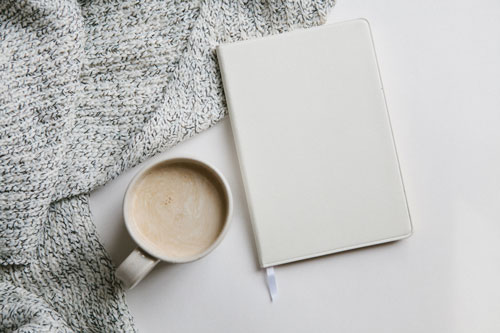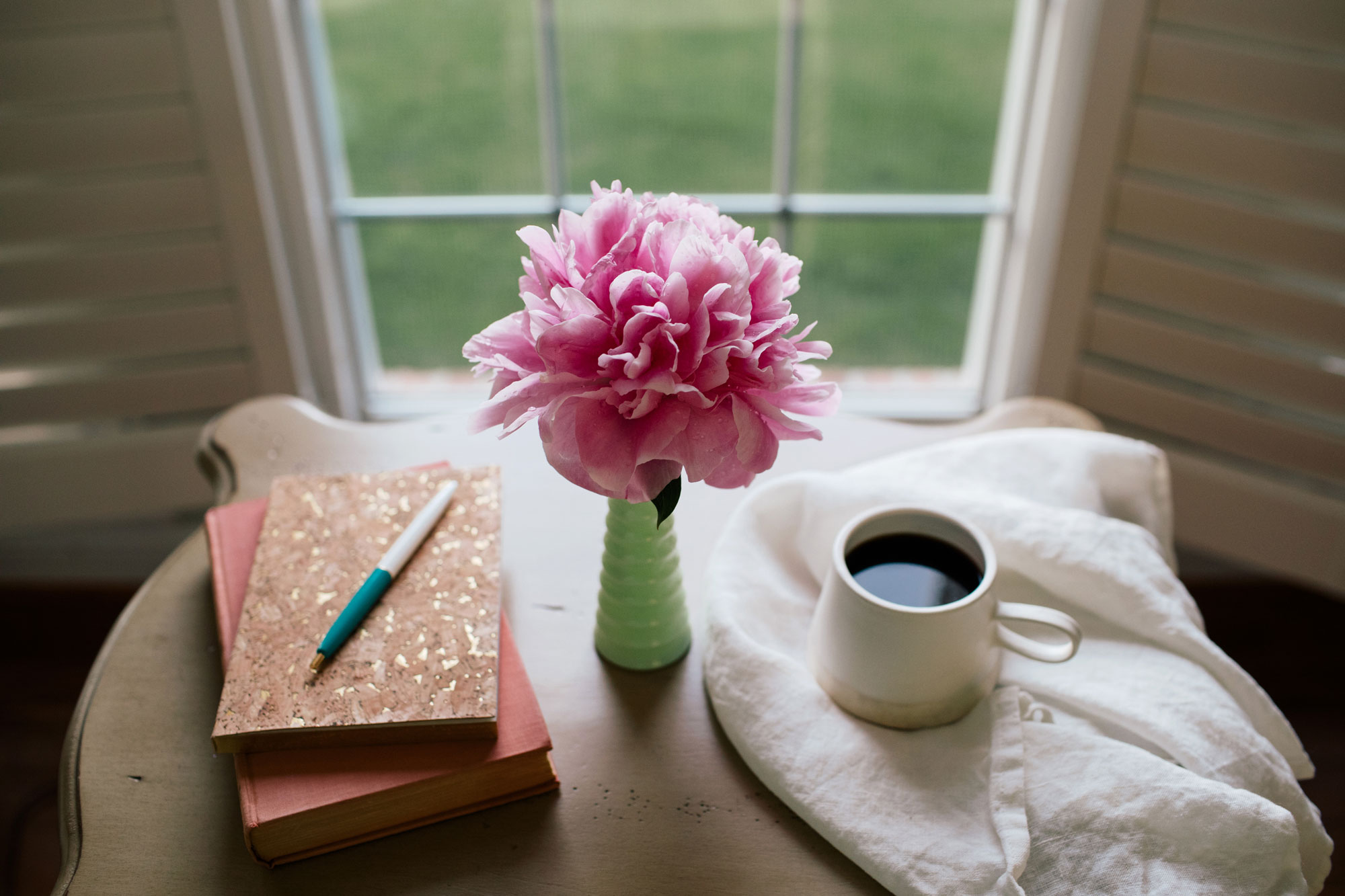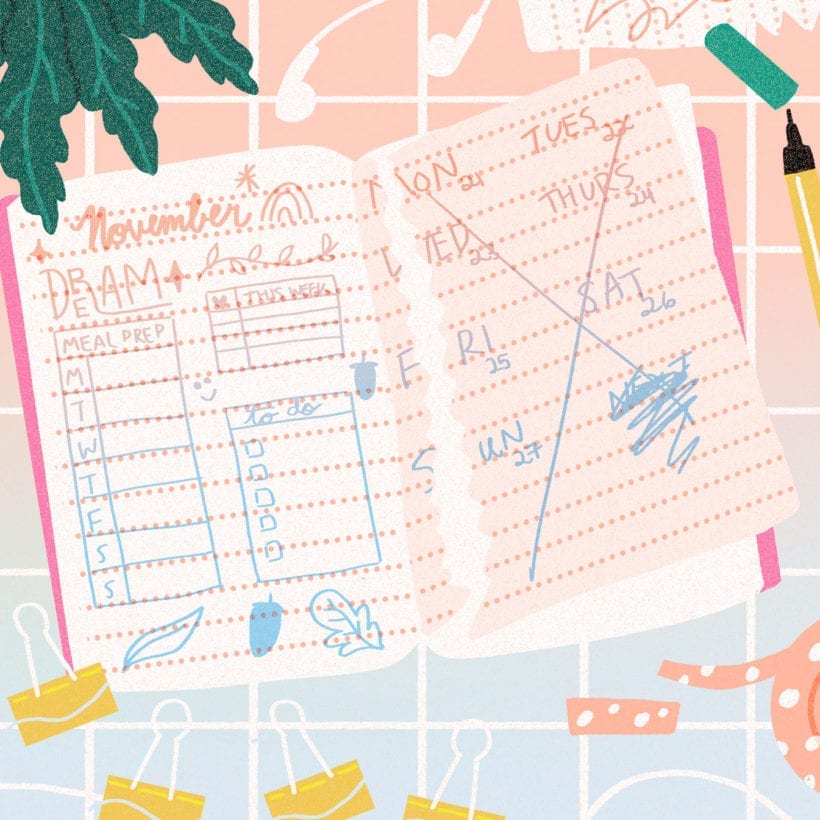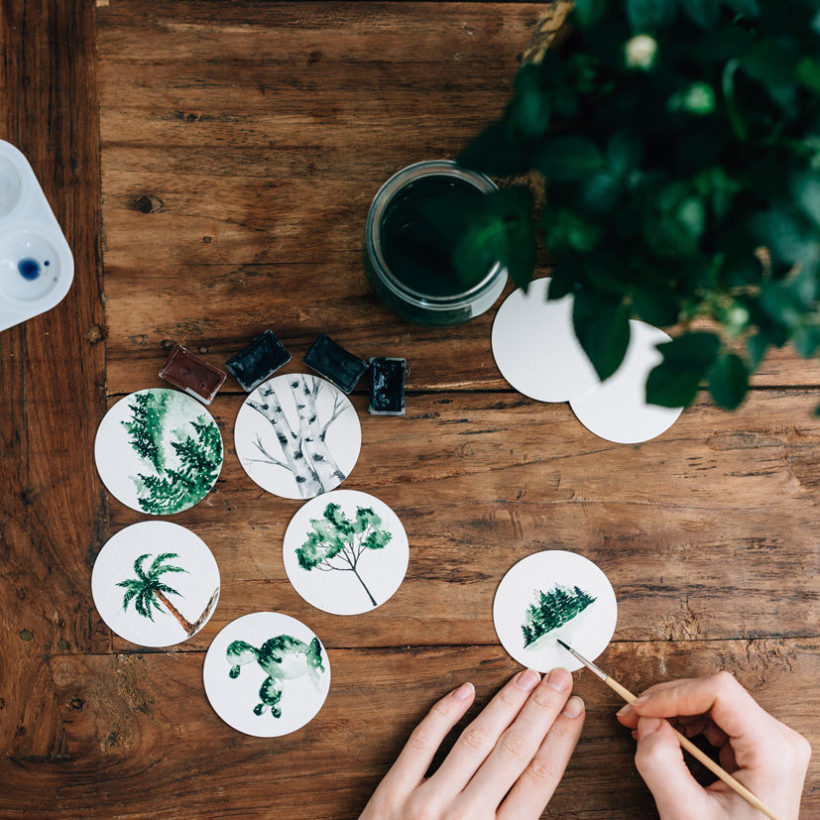During a period of our lives where it feels like every day seemingly blends into another, journaling is a way to help you collect your thoughts and work through feelings. People have been writing in journals forever, whether you kept a diary when you were younger or a school teacher required you to jot down your ideas. On an emotional level, journaling releases pent-up feelings, which has known to be the cause of anxiety and destructive behaviors, and lets you clear your head so that you can be more productive and calmer. Journaling also gives you a chance to process your thoughts, get a little distance and perspective from a situation, and offers you a sense of control when you can translate your emotions into words.
When we know ourselves better, we can communicate our needs more clearly, and this directly improves our relationships.
But it hasn’t been until the past couple of decades that studies have unraveled the concrete health benefits of grabbing a pen and a piece of paper. One report from 2006 showed that people who spent 15 minutes journaling just twice within one week saw lessened symptoms of anxiety and depression. “It can help control your symptoms by prioritizing and processing problems and fears and help you become more aware of your symptoms and triggers, allowing you to create habits to counteract them better. When we identify negative emotions, their intensity decreases whether we are speaking about them or writing about them,” says Lianna Nielsen, an integrative nutrition health coach.
Other studies have shown that journaling stressful events have helped people lessen the effects of chronic illnesses like asthma and boost their immune system, resulting in fewer doctor visits. Journaling has been impactful in stress reduction with research from a 12-week study showing that adults show journaled three days a week for 15-minute sessions showed improvement in mental distress and well-being.

And, since the pandemic has stunted our social skills, you’ll be glad to hear journaling can benefit your relationships, too. One study published in the journal Psychological Science, has shown that journaling about a romantic relationship, may help improve it and extend its longevity. “The practice of journaling allows you to further your understanding and exploration of both your needs and emotions,” Nielsen explains. “When we know ourselves better, we can communicate our needs more clearly, and this directly improves our relationships.”
How to Begin Journaling
Journaling is the act of regularly recording your thoughts, feelings, emotions, ideas, memories, etc. explains integrative nutrition health coach, Lianna Nielsen. It doesn’t even have to be writing down words. Nielsen points out that journaling can take many forms, from hand-written to digital or visual, through drawing, painting, or collage. One of the best parts of journaling is its convenience. “Individuals who are having a hard time identifying or processing their emotions, going through a difficult time or big transition in their lives would like therapy, but may not have access to it or don’t feel like they have people in their lives that they feel comfortable sharing with may benefit most from journaling,” says Tanya Otterstein-Liehs, empowering movement and mindfulness coach.

Below, experts share some tips for how to utilize journaling in the most efficient way possible to strengthen your mental health.
Choose a type of journaling that you enjoy
Whether it’s stream of consciousness, gratitude journaling or illustration, Otterstein-Liehs recommends finding something that comes easy to you so that you will do it often. Not only will this help encourage and motivate you to stick with your journaling, but it will also make the experience more enjoyable for you, which will entice your commitment to it.
Schedule it into your calendar
Instead of just telling yourself that you will start journaling, it can be a good idea to actually schedule it into your calendar. Not only does this make you more likely to commit to the activity itself, but it also ensures that you are giving yourself the opportunity each day to connect with yourself in a way that can boost your mental health. “New habits always take time and energy to put into practice but most of the lasting benefits come from consistency,” says Otterstein-Liehs. “Start with just a few minutes initially, first thing in the morning or right before bed, as these can be the easiest times to stick to.”
Establish a safe space to journal
Because journaling requires thought, it’s a good idea to find a spot, either in your home, place of work or at a coffee shop, that you feel at peace and will not be interrupted. “Having a quiet space where you won’t be interrupted will allow you to fully focus on this special ‘me’ time for journal writing,” notes Nielsen.

Don’t overthink it
Journaling is an intimate process that is solely for your benefit — no one else’s. There is no right or wrong way to do it. For this reason, it’s important to be kind to yourself and free yourself of any self-judgment. “Your journal is a private and safe space for you to explore all of your thoughts and feelings,” Otterstein-Liehs says. “You are free to express yourself in ways you may not feel open to in any other area of your life, so take advantage of that.”
Keep it simple
Nielsen suggests sticking with simple journaling activities so that it feels calm and relaxing instead of work-like or stressful. “Keeping it simple is easier to do and focussing on what you’re grateful for will help you with feeling and experiencing positivity for your mental health,” she says.
We only recommend products we have independently researched, tested, and loved. If you purchase a product found through our links, Sunday Edit may earn an affiliate commission.







